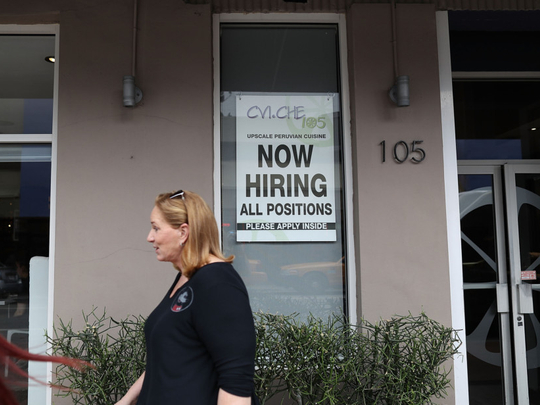
Washington: Applications for US unemployment benefits have gradually eased from a stream of business reopenings.
Initial jobless claims for regular state programmes totaled 1.54 million in the week ended June 6, down from 1.9 million in the prior week, Labor Department figures show. Applications for unemployment insurance have fallen consistently each week since peaking at the end of March, but the volume of weekly filings is still more than double the worst week during the Great Recession.
Continuing claims - the total number of Americans claiming ongoing unemployment benefits in state programmes - decreased by less than estimated to 20.9 million in the week ended May 30. Those figures are reported with a one-week lag. The four-week average of continuing claims declined for a second week, to 22 million.
When paired with the May employment report out last week, which showed employers added 2.5 million workers to payrolls in the month, Thursday's data underscore the degree of churn in today's labor market. Millions of Americans are returning to work, businesses are reopening and many restaurants are once again serving dine-in customers.
At the same time, companies continue to face diminished demand and are laying off workers as a result of the financial strain. The worst of the coronavirus-related layoffs are likely over, but the secondary effects of what may ultimately be the deepest recession in almost a century could persist for much longer.
Fed chief has a say
Federal Reserve Chair Jerome Powell on Wednesday expressed concern about longer-term unemployment challenges in the wake of the pandemic.
"My assumption is that there will be a significant chunk - well into the millions of people - who don't get to go back to their old jobs and there may not be a job in that industry for them for some time. It could be some years before we get back to those people finding jobs."








